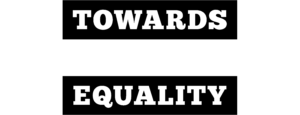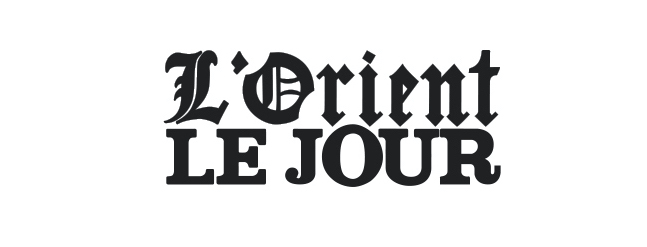The Lebanese crisis also offers an opportunity: to put an end to discrimination against women
Halimé Kaakour
By Halimé Kaakour, doctor in public law, professor in law and political science at the Lebanese University and specialist in human rights and gender issues
L’Orient Le Jour (Lebanon)
For nearly two years now, Lebanon has been continuously engulfed in an unprecedented political, financial and economic crisis, due to generalised corruption, misguided monetary policies, bad governance, a tribal and confessionalism-based political system and discriminatory policies, among other reasons. This has led to the collapse of the domestic currency, hyperinflation, and a spike in unemployment levels. Half of the population now lives below the poverty line. All these factors, ultimately, erode the dignity of the Lebanese people.
The situation seems dire, but it could also provide the opportunity to envision another Lebanon; one where the country’s citizens, both men and women, are finally able to enjoy all their rights, putting a stop to the discriminations that weigh upon half of the population: women. All the more so because, in the end, all of Lebanon, and not just its women, would benefit from such a revolution.
According to a report published in 2020 by UN Women, only 29% of Lebanese women are active in the labour force. Lebanon ranked 139th out of 156 in the 2021 World Economic Forum’s Global Gender Gap Report in terms of labour force participation for women, and 132nd in terms of overall gender equality. Regarding the political participation of women, the country stood in 112th place, despite an increase in the number of female politicians in the latest cabinet.
Today the Lebanese parliament only counts six women among 128 MPs — a situation that is, above all, the result of numerous stumbling blocks, such as the confessionalism of the parliamentary political system – in which political power is distributed among the Heads of religious communities –, the economic system and the concentration of capital in the hands of too few men. Moreover, within a number of the traditional political parties, power is transferred between men along hereditary lines — a situation that makes Lebanon one of the most inegalitarian nations in the world, and which hampers progress both towards social justice and gender justice.
In my latest publication, Lebanese Women, Journey to the Parliament, I exposed the multiple obstacles that stand in the way of Lebanese women’s participation in political life. Among them, violence against women — 78.6% of candidates to the parliamentary election of 2018 report having been victims of various kinds of violence. One of them was hit by her husband each time she left their house to lead her electoral campaign, because he was against her candidature. “I was afraid that people would see the marks on my face or body, but I can’t get divorced because according to the personal status of my religion, he has the right to custody of my children, and I can’t live without them”, she told me. Another female candidate was harassed by members of her village because her candidacy embarrassed the men of her family. It’s above all on social media that candidates are subject to a stream of violence and misogyny. One can read messages such as, “Go back to your kitchen”, “Look after your kids instead”, “We know your dirty sexual history”, “How much did you pay the party leader to get on his list?”
In addition to such attacks, female candidates have also had to deal with faith-based political parties that only put women on their lists in the most marginal way they can, not to mention various media outlets, which are owned by political groups and contribute to the amplification of gender stereotypes. This is reflected in the time allocated to their media coverage, or the type of questions they are asked. “I spent my allotted 15 minutes on air justifying my candidacy as a woman. I was asked if my husband accepted it, if I was able to look after my kids and do politics at the same time, and if I was really capable of having a political career, being a teacher”, one of them told me.
Beyond the economic and political domains, where the lack of gender equality is obvious, the social rights of Lebanese women are being flouted. Lebanon doesn’t have a unified civil code regulating personal status matters; female citizens are subject to one of 15 religious laws for all that concerns divorce, child custody, inheritance, property rights. Not only do women not benefit from the same rights as men in these matters – for example they are unable to pass on their nationality –, they are also not equal among themselves. A divorced Sunni woman won’t have the same child custody rights as a Greek-Catholic woman, for instance.
For all the inequalities that exist, there are as many studies that show how much a society or country has to gain from the better inclusion of women, and beyond that, from gender equality.
Let’s think of the potential economic impact, both on productivity and on growth. In 2019, a study conducted by the International Monetary Fund indicated that discrimination against women causes economic losses ranging from 10% of GDP in developed countries, to more than 30% in the Middle East.
Increased female representation in every social domain would bring as much to the economy as to the political and social life of the country, owing to the benefits of having a richer diversity in terms of skills and approaches, a McKinsey Institute report noted in 2016. In the United States, for example, 25% of female elected representatives voted for laws put forward by an opposition party when they concerned the rights of the most impoverished, compared to 17% of male elected representatives, according to a study by the Center for American Women and Politics published in 1991. Another study, conducted by Stockholm University in 2008, found that political institutions which include women give higher priority to citizen’s rights, such as rights to healthcare, education and the rights of women.
There has been abundant scientific research in this area, showing that the political participation of women reinforces democracy, inclusion, citizen’s rights, good governance, durable peace, and co-operation between different parties that overrides ethnic, religious or political divergences. So many of these points relate to the key issues of the crisis that Lebanon is experiencing; along with other countries that are suffering similar crises, too.
In Lebanon’s case, it’s important that the current political system gets replaced by a just and democratic secular state, capable of producing a new and competent political class, which in its turn would be capable of adopting an inclusive and participative approach in its public policy in order to equally defend everyone’s individual rights and private and public freedoms.
The obstacles in place remain considerable in scale and in number, but they are surmountable if there is political will and, above all, awareness of the added value of women. And, of course, of their value in itself.

This article is being published as part of “Towards Equality”, an international and collaborative initiative gathering 15 international news outlets to highlight the challenges and solutions to reach gender equality.




